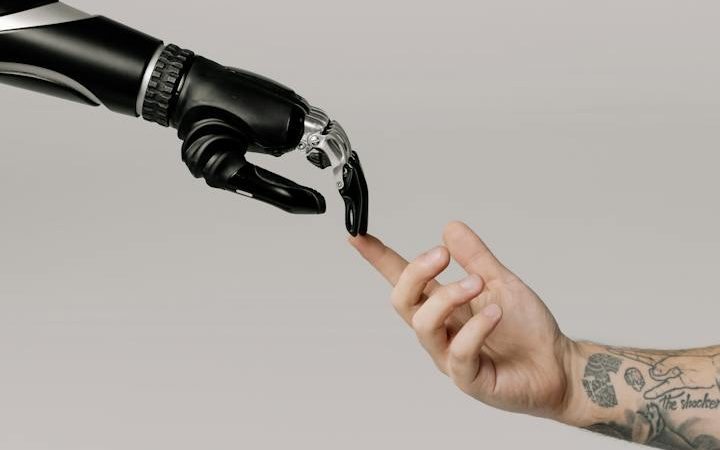How Privacy-Enhancing Technologies (PETs) Helps To Safeguard Personal Data

Consider all the wonderful customer experiences you’ve experienced. A lovely email from your favorite coffee company for your special day. A perfect gift suggestion for your difficult-to-please friend.
An unexpected change at the hotel you booked regularly but haven’t visited for years. What’s the cause? Seamless customer intelligence.
Technology that improves privacy (PETs) can reduce amounts of information that is processed to safeguard personal data.
They are used in various ways such as COVID-19 contact tracing as well as identifying trends in the city’s relocation and even sending electronic payments.
Being able to recognize and anticipate customer needs is a must in a world where loyalty is harder to gain and sustain than it ever was. But, the increased regulatory burden and greater awareness of privacy issues has made it more difficult to gain access to and link to the data that leads to those unexpected and gratifying moments that we’ve all experienced.
Data collaboration could help fill in the gaps as long as privacy is protected in the pursuit of more data-related utility. This is a difficult concept for many to deploy at a large scale, until today.
Marketers are under increasing pressure from regulators, consumers and security teams to safeguard current and prospective customers’ privacy. They are also looking for solutions.
When Gartner included privacy-enhancing computations, commonly referred to as privacy-enhancing technologies (PETs) to its list of 2022’s most technological trends that will shape the future of technology it was evident that these technologies were chugging upwards in the Hype Cycle as a means to address the privacy of consumers dilemma.
As per IAB Tech Lab, a Non-Profit organization that was established to create and invest in the improvement of digital ECO systems.
“PETs” is an broad word that encompasses the entire spectrum of technologies focused on protecting personal information. that result from the fields of machine learning, encryption de-identification, cryptography, and de-identification.
Table of Contents
What are the PETs exactly?
Many organizations are working on the PET taxonomy. Some are influenced from Daniel Solove’s Taxonomy for Privacy and classify PETs according to their ability to solve specific privacy concerns such as insecurity, surveillance or theft. Some, like those at the UK Center for Data Ethics and Innovation classify PETs according to their degree of complexity or market readiness conventional as opposed to.
new technologies. Other organizations, like those of the Federal Reserve Bank of San Francisco are categorizing the PETs based on their own privacy risks such as changing data or shielding it from being accessed by hackers.
PETs are addressing the increasing issues for marketers
Between the GDPR law and CCPA and Apple’s newly-released iOS standards, and Google’s imminent discontinuation of third-party cookies in Google, privacy issues have reached the tipping level, as explained by Rich Sobel, founder and CEO of the marketing consulting firm Marcato Solutions. This has resulted in increasing issues for marketers.
The company will take customer previous data which indicates that he is looking and where he is opting into making buying decisions, using third-party, first and second party information on these customers was handled a bit “upstream,” in which the data was utilized and modelled prior to buying an ad. Digital media lets advertisers assess the effectiveness of their ads currently, but applying in real-time upon purchase of the ad , all the information was previously used to create models.
This is why the process that is used to collect customer data, and the opt-out tracker is bound to create a number of problems. In exchange, PETs are able to safeguard the information at a higher extent, and also to address privacy concerns of the customers and this is now an issue from the advertising industry and they are examining this over the next twelve months.
Read More: 3 Tips to Create Highly Engaging Facebook Videos
Many companies are looking to share their data in order to work together
There are a variety of PET taxonomies. However, they usually cover topics like the federated learning, differential privacy synthetic data secure multi-party computation homomorphic encryption, secure enclaves and data masking/tokenization/data hashing.
Companies are deciding to share their data via cloud infrastructures that are public and have plans to share their data to be accessible to diverse customers. Marketers are using data in a collaborative way to better understand the journeys of their customers from browsing to deciding to purchase.
Future of PETS
The Royal Society has an PET Working Group. IAB Tech Lab is an PET Working Group. There is also the annual Privacy Forum is run by ENISA which is ENISA, the European Union Agency for Cybersecurity is a PET-related program. It is reported that the White House just launched a PET prize contest. To be real.
There’s certainly been plenty of progress in the PETs arena during the last year. The company announced in August of 2021 that Meta stated that they were “investing on a longer-term plan to create a suite of privacy-enhancing technology and work with industry experts in developing these standards, as well as other ones which will help us transition to the next generation of privacy.






